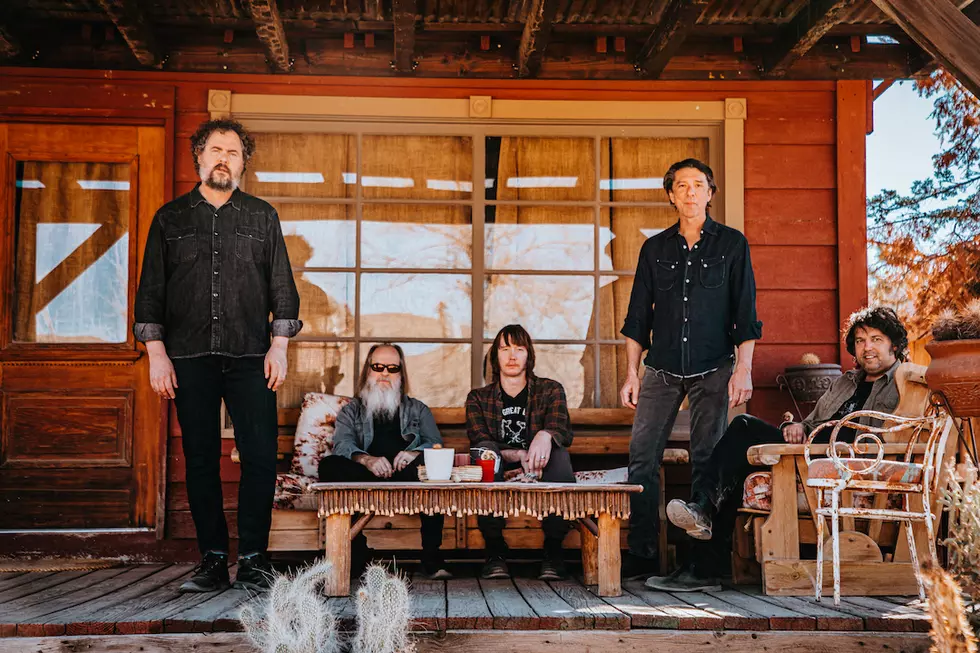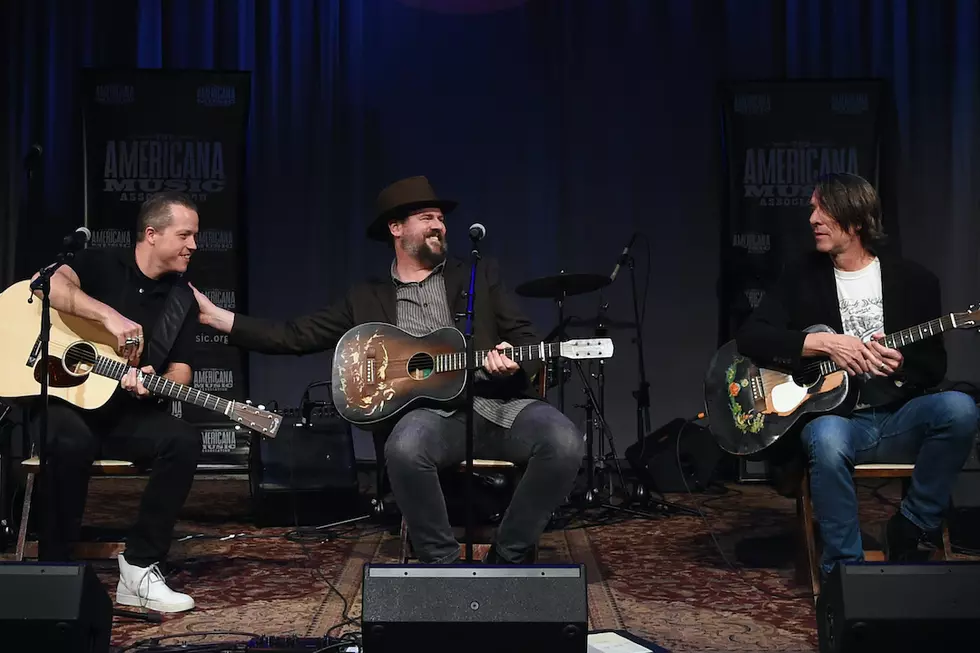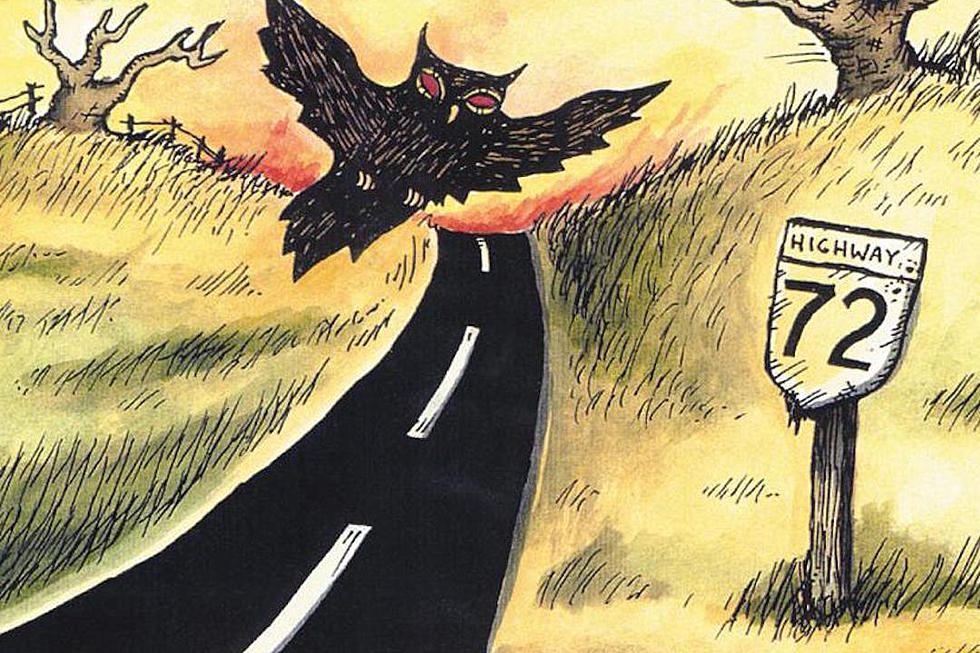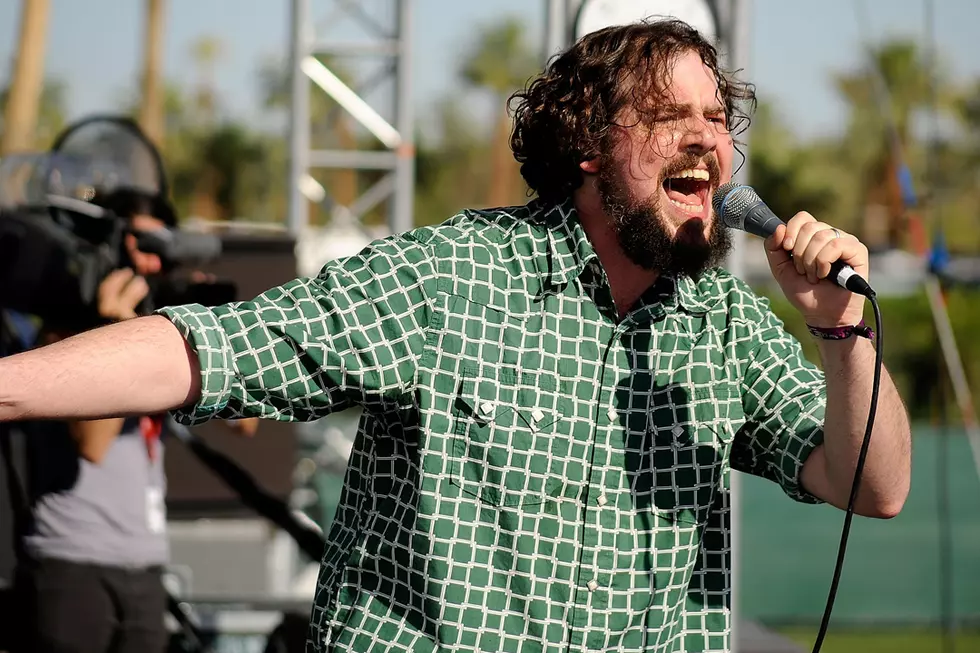
ALBUM REVIEW: Drive-By Truckers Prove Their Staying Power With ‘Welcome 2 Club XIII’
In 2017, the Americana Music Association finally embraced Drive-By Truckers after their protest album American Band earned a wave of critical acclaim. That year, they were nominated for Album of the Year and Duo/Group of the Year at the Americana Music Awards, just 20 short years into their career — because where else do you place a Southern band with a sound that doesn't fit neatly into a box?
No one has ever wanted to call this band punk rock because its two songwriters and vocalists, Patterson Hood and Mike Cooley, sound like they were born and raised in rural Alabama. But there's been few bands that have ever exuded the punk rock spirit more than Drive-By Truckers.
The release of American Band marked the beginning of what you could label as a trilogy, which continued with The Unraveling, which was released in 2020 just before the pandemic, and The New OK later that year, when the country was in lockdown. It's an overreach to say that the three records took a more "serious" tone than the band's previous work; instead, they took a more outwardly political one. While the band had spent the past two decades writing about where they grew up and what they knew, the Truckers were now trying to make sense of the world around them. There were tracks like "Thoughts and Prayers" and "Babies in Cages," with titles that spoke for themselves.
Welcome 2 Club XIII promised to be a return to the old form — which many probably assumed would mean lyrical content that was "less serious." But it's not that. It's a return to introspection of lives that have been whiskey soaked and road worn. It may seem that the titular track is stylized comically, but that's exactly what the sign said on the actual club that sat on the south side of O'Neal Bridge in Colbert County [it had "Roman numerals on their sign because they were classy," Hood states in the liner notes.]
Aurally, the track is campy, so as the lead single, it's easy to make the mistake that this record is "less serious." But this is a track that recalls "penny beer and cheap cocaine," and laments that "our glory days did kind of suck." It's where Hood and Cooley's first band, Adam's House Cat, played to no one. It was the heart of "Buttholeville." [Incidentally, Club XIII is now an oral surgeon's office or a storage facility. It's been a lot of things over the past 30 years.]
This record is centered around "home," and focuses on that theme more than any of their releases from the past 16 years. Beyond the tale of the defunct club that decries that "Muscle Shoals just needs some punk," the opening track, "The Driver," a mostly spoken-word, seven-minute epic, recalls driving around, wasting gas "across the bridge to Sheffield then out into Tuscumbia."
Cooley penned just two tracks here: "Maria's Awful Disclosures" and the second single, "Every Single Storied Flameout." The latter doesn't have the big, catchy sing-along hook that so many of his most memorable songs have had in the past, but it's the best songwriting he has ever done.
"I wrote that song when my son was turning 16 and going through a rough patch for a bit. Luckily, he's turned it around and he's doing great now, but it was a tough time for a while," Cooley said of the track in a statement. "Part of my way of dealing with it was to take ownership of the example that I might've set, in the hope of leading him out of it."
It's also the first Drive-By Truckers track to feature a horn section, comprised of Randall Bramblett on tenor sax, Tom Ryan on baritone sax and J.R. Beckwith on trumpet.
The band called on a lot of friends for these nine tracks. For starters, it's the first studio album since 2014's English Oceans to feature the artwork of longtime collaborator Wes Freed. But inside, the record features guest vocals by Margo Price, Mike Mills of R.E.M. and Schaefer Llana, harmonica from Jeremy Ivey and additional instrumentation provided by David Barbe and Scott Danbom.
There are no wasted tracks here, and that's a gift that the aforementioned "trilogy" may have delivered to the Truckers, a band that was never the best at brevity. That's not to say that they wasted any tracks two decades ago, but a rock opera and double album about the Lynyrd Skynyrd plane crash was anything but "brief."
Maybe this is the Truckers' own A Pirate Looks at Fifty, the Jimmy Buffett autobiography that finds him reflecting on the first 50 years of his life. After three decades, Hood and Cooley— two of the hardest working men in music — have finally found the most focused and fully realized version of a band that they "were convinced would be the next R.E.M.," as Hood also jokes in the liner notes.
Drive-By Truckers never became R.E.M., but the world didn't need another R.E.M. It needed Drive-By Truckers. While the former is arguably the greatest American rock band of all time, the latter is arguably the most important rock band of all time — and this nine track collection is a reminder of why.
PHOTOS: Maren Morris, Tanya Tucker + More Heat Things Up at Stagecoach 2022
More From The Moose 94.7 FM
![Jerry Joseph and the Stiff Boys (AKA the Drive-by Truckers) Ring in ‘The Quiet’ [EXCLUSIVE PREMIERE]](http://townsquare.media/site/623/files/2022/11/attachment-Jerry-Joseph-the-quiet.jpg?w=980&q=75)







![Jason Isbell Live Performance in Seattle [VIDEO]](http://townsquare.media/site/13/files/2015/06/GettyImages-468875170.jpg?w=980&q=75)

